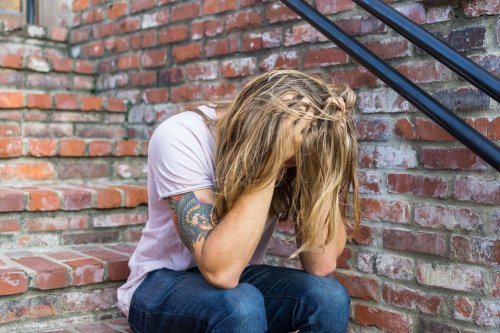Find Outpatient Drug & Alcohol Detox Centers Near You
- What is outpatient detox
- What happens in drug and alcohol detox
- Different treatment options with American Addiction Centers (AAC)
What is Outpatient Drug and Alcohol Detox?
In outpatient detox, patients visit their doctor, clinic, or treatment center for the regular scheduled visits they need to safely go through withdrawal — without needing to stay at the rehab center. This enables individuals to maintain their ongoing work or family commitments while beginning their recovery journey.
For individuals with a significant dependence on alcohol, benzodiazepines, or opioids, stopping suddenly can trigger severe and potentially fatal withdrawal symptoms.
Because of this high risk, detoxing in an inpatient or residential setting is essential for safe, around-the-clock medical management.
Medication-assisted treatment (MAT) is a treatment modality that aims to ease withdrawal symptoms and reduce cravings. MAT helps stabilize patients by easing withdrawal symptoms, allowing them to shift their focus from managing physical discomfort to their recovery.
It is essential to recognize that Medication-Assisted Treatment (MAT) is not solely relevant for managing withdrawal symptoms. In fact, it serves as a highly effective long-term therapeutic option for individuals grappling with Opioid Use Disorder (OUD). Treatments like methadone and buprenorphine are crucial components of this approach, providing sustained support to help patients stabilize their lives, reduce cravings, and prevent relapse. By integrating MAT into a comprehensive treatment plan, individuals can achieve improved overall well-being and a greater chance of long-term recovery from opioid addiction.
Medications are also given to address specific withdrawal symptoms, such as anti-nausea medications for intestinal issues or over-the-counter painkillers to ease aches and pains.
Continuing Care for Long-Term Recovery
It is important that patients continue treatment after detox. Detox primarily addresses physiological dependence on substances. Without continued treatment to address the social and behavioral aspects of addiction, relapse is likely.1
Outpatient Detox vs. Inpatient Detox
The right detox treatment plan for a person struggling with a substance use disorder (SUD) will depend on their health history, the substance they’re stopping, and the support they have around them, among other factors. Here’s a quick side-by-side to help you understand the differences.2
| What to compare | Outpatient detox | Inpatient (residential) detox |
| Where it happens | You visit a clinic for scheduled appointments. | You live at a rehab center on-site 24/7 for the duration of treatment. |
| Medical monitoring | Periodic check-ins (e.g., daily or several times per week). | Continuous monitoring with round-the-clock medical care from nursing and on-call physicians. |
| Safety | Appropriate only when withdrawal risks are low to moderate and home is stable and substance-free. | Highest level of safety for moderate–severe withdrawal or when complications are possible. |
| Medications | Providers can prescribe/adjust medications during visits. | Medications can be started and adjusted promptly with continuous observation. |
| Home triggers & access | Greater exposure to cues/people/places tied to use; access to substances is not restricted. | Triggers are minimized; access to substances is restricted. |
| Work/family flexibility | You can keep many daily responsibilities. | You step away from daily responsibilities to focus on stabilization. |
| Typical length | Varies; often several days to 1–2 weeks of visits. | Usually a few days to ~2 weeks, depending on substance and symptoms. |
| Cost/coverage | Often lower cost than inpatient; many programs accept insurance. | Higher overall cost due to 24/7 care; commonly covered by insurance when medically necessary. |
How clinicians decide which is right for you
A healthcare provider will look at the substance involved, the severity of symptoms (including withdrawal), your overall health, any co-occurring mental health conditions, and your support system.
Treatment may range from outpatient visits for counseling and medications, to intensive outpatient or inpatient programs, to longer-term residential care. For opioid use disorder, specialized programs can provide medications like methadone, buprenorphine, or naltrexone along with counseling. The goal is to match you with the safest, most effective setting to help you begin and maintain recovery.2
A note about AAC
American Addiction Centers (AAC) operates outpatient rehab programs nationwide; however, our detoxification services are provided in inpatient settings to prioritize safety and comfort. After detox, we’ll help you transition into the next level of care—whether that’s residential treatment, partial hospitalization, or outpatient therapy—so you can continue building your recovery.
Not sure which option fits your situation? Speak with an admissions navigator for a no-pressure, confidential discussion and insurance verification. Same-day admission may be available depending on clinical need and location. Call (866) 399-3979 now.
The Withdrawal Process
The length of the detox process and the specific symptoms experienced depend on the individual, as well as the substance used.
For instance, someone who is withdrawing from alcohol will have a different experience than someone who is withdrawing from opioids. Factors like age, overall health, metabolism, and history of substance use can shape how withdrawal feels for each person. Even so, there are some common symptoms that often occur when detoxing from specific substances.2
Withdrawal Symptoms by Substance
- Marijuana withdrawal: The general symptoms are typically mild and resolve within a few days to two weeks. The person might feel anxious, tired, and irritable throughout the detox process. Their appetite may also be affected.
- Alcohol withdrawal: These symptoms can be severe and life-threatening, depending on the patient’s health and the severity of their dependence. Nausea and vomiting are common. In addition, the person might experience an elevated heart rate, tremors, anxiety, insomnia, and seizures. Because of the risks involved, patients often need medically managed detox in an inpatient facility.
- Opioid withdrawal: Opioid concentration can be intense with symptoms such as excessive sweating, muscle cramps, hot flashes, chills, diarrhea, anxiety, and nausea. Individuals shouldn’t quit opioids cold turkey due to the risks associated. Medications such as buprenorphine may be prescribed to ease the withdrawal process.
- Benzodiazepine withdrawal: Medical detox is required for benzodiazepine withdrawal due to the severity of symptoms. Usually, doctors prescribe a tapering process where the dosage of benzodiazepines is slowly lowered over a period of time until the person is eventually fully weaned off the drugs. Withdrawal symptoms include anxiety, irritability, muscle aches, poor concentration, and insomnia. In some instances, life-threatening seizures can develop.
- Stimulant withdrawal: Withdrawal symptoms include increased fatigue, depression, sweating, muscle aches, and irritability. If psychiatric symptoms are severe, the individual will be referred to inpatient care. In both inpatient and outpatient stimulant detox, individuals are monitored for signs of depression.
Is an Outpatient Detox Program the Right Choice?

Only a supervising physician can determine if an outpatient detox program is appropriate for you.
Outpatient alcohol detox is not typically recommended because of serious risks like seizures and delirium tremens (DTs). While withdrawal symptoms often start within hours, they can also be delayed for several days and vary widely from person to person. Symptoms may peak between 24–72 hours but seizures or other complications can still appear later, making close medical monitoring the safest option.
In most cases, those withdrawing from opioids and benzodiazepines will be recommended to inpatient detox. Anyone detoxing from these substances should be under medical supervision, even if detox is attempted in an outpatient setting.
How to Choose an Addiction Treatment Program
Here are the questions to ask about prospective treatment facilities:
- Does this program suit my needs? Different programs are tailored to address withdrawal from different substances. For example, certain programs have the capacity to prescribe detox medicines for substance use disorders where clinically appropriate.
- Do you feel comfortable? You should feel comfortable with the staff members and other clients in a detox center. You don’t need to surround yourself with people who like you, but you do need to feel that you can be yourself. Certain treatment programs cater to specific demographics, such as programs that specialize in LGBTQI+ individuals or young adults.
- Can you afford it? Many detox centers accept insurance, so make sure you choose one that will work with your provider. Outpatient programs are often much cheaper than inpatient options, and many programs offer payment plans to finance the portion that insurance doesn’t cover.
- Do you have access to transportation? Choose a clinic you can easily get to every day. The recovery process has to be manageable for your lifestyle.
Call an admissions navigator to discuss options or to begin the admissions process at an AAC treatment center today.

